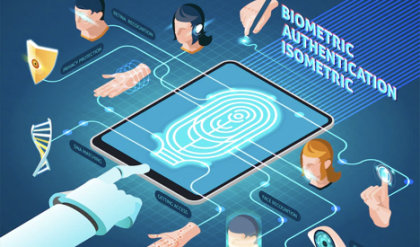
Invoices are a critical part of the customer payment process. They document product, service, and payment details to ensure accurate accounting and reports for financial and management purposes. E-billing speeds up the time from invoice generation to payment receipt by automating the process for SaaS and subscription companies. Using this method also lowers expenses related to manual processing.
Customer Service
When it comes to billing systems, customer service is critical. An unfriendly or inefficient system can stop customers, making your business seem shady or ineffective. Finding a billing system that makes transactions as easy as possible for your customers and yourself is essential.
Check online software review sites to see what users say about the ease of integration and support. The best billing systems are backed by an experienced team that will work hard to ensure they remain up and running. If your billing system is down, it could result in revenue loss and the inability to collect credit card information and entitlement data.
In addition, a billing system behind updates will quickly become outdated and not provide the value you’ve come to expect from your software. So, ensure the vendor you choose has a strong roadmap for progression and is committed to making their product as good as possible. You should also look into the vendor’s uptime and understand how long it takes to fix issues that occur.
Security
Quality automated invoicing systems streamline the quote-to-cash process and make your operations much more efficient. Look for a system to create a professional invoice within seconds and ensure every bill is delivered on time. Additionally, it’s essential to choose a system that supports multiple user-convenient payment methods.
It helps you avoid losing customers to churn because their preferred payment method needs to be supported, which can be very costly. Determining how seamlessly your recurring billing system will integrate with other digital tools and third-party applications, your team uses is also essential. Ideally, your recurring billing software will have an open application programming interface that can easily connect to other internal and external systems for smoother data transfer.
It’s also important to ask how a billing system handles peak loads as your business grows. Many subscription management platforms are multi-tenant SaaS solutions shared with other clients and could face performance issues when several users log in simultaneously. Ask a vendor how they manage these conditions and their plans for handling future load growths as your business expands worldwide.
Automation
When most people think of automation, they picture robots moving around a warehouse or manufacturing company. But automation doesn’t just help big companies; it’s also an essential tool for small-scale businesses. It saves money, increases efficacy, and encourages business growth.
Automating specific processes allows employees to focus on higher-value work, which means less stress and better productivity. Additionally, it reduces the waiting time for customers. Customers with simple issues can use automated customer service solutions, freeing up time for those who need to speak to an agent for more complex problems.
Process automation is a way to streamline your workflow and centralize information so you can easily find files and documents. Suppose you’ve recently hired a new employee, and they require a copy of an old invoice. Searching for it can take up several hours of your time. However, with process automation, the software will automatically upload that file to your central system, saving you valuable time. Monitoring your inventory using this tool can help you resolve customer issues more efficiently.
Scalability
As businesses grow, they must change their processes to accommodate the new demand. It cannot be accessible without a scalable billing system to handle increased transaction volumes, data, and customers. A sound billing system should handle complex pricing models with add-ons, discounts, coupons, extended trials, buy-one-get-one-half prices, and subscription bundling. They should also support various payment methods and country-specific invoicing and tax handling.
The ability to track and analyze subscription data is essential, too. Look for systems that offer basic metrics like trial conversion and MRR, but if you want to understand customer churn and retention in more depth, consider opting for a dedicated subscription data platform. Finally, a great billing system should have high uptime – at least 99.9% – to avoid costly and frustrating downtime for your customers and internal teams. Ask your billing system vendors about their uptime commitments and how often they do maintenance. Also, check whether their API library includes the complete set of capabilities offered in their system interface.
Integrations
Efficient business operations require the implementation of various components. It includes things like inventory management, invoicing, and customer service.
All of these aspects can be improved by software integration. It is connecting different systems to work together and share information. For example, if your sales team tracks an opportunity that needs to be invoiced in the financial system, this can be accomplished with simple integration.
Using this tool will save your team valuable time and guarantee that accurate information is recorded in every system. Integrating benefits the people running the business and makes for a more effortless experience for customers when shopping online. It’s essential to thoroughly consider your alternatives and select the best solution to match the demands of your company. Doing this lets you streamline your workflow and make it as efficient as possible. It will make it simple for your business to develop and grow.






